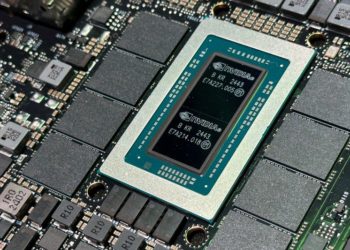By Abigail Summerville and Svea Herbst-Bayliss
(Reuters) -Tylenol maker Kenvue was already having a painful year before U.S. President Donald Trump and his health secretary got involved.
Activist investor Starboard Value took aim at the company about a year ago, forcing the Band-Aid and Benadryl maker to settle a potentially costly and time-consuming fight by naming the hedge fund’s CEO, Jeffrey Smith, and two other directors to the board in March.
Other unhappy investors weren’t mollified by the board refreshment, including Daniel Loeb’s hedge fund Third Point, which quietly built its own stake in April.
In mid-July, Kenvue’s board ousted its CEO after already replacing its chief financial officer and launched a strategic review of its operations, which sources say could include a sale or breakup of the company that had been spun off from healthcare conglomerate Johnson & Johnson in 2023.
Then news leaked on September 5 of a report that Health Secretary Robert F. Kennedy, Jr. planned to release linking its popular painkiller Tylenol to autism, driving shares down 9% that day.
AUTISM CLAIMS
Arguably the biggest blow came on September 22, when Trump told people to stop taking Tylenol. Flanked by Kennedy at a rare Roosevelt Room press conference, he told America: “It’s not good.”
The Food and Drug Administration, part of Kennedy’s Department of Health and Human Services, that same day said it was slapping a new warning on Tylenol labels reflecting safety concerns that its active ingredient, acetaminophen, could cause attention-deficit/hyperactivity disorder and autism in children whose mothers took it during pregnancy. That claim was refuted by influential medical groups and dismissed in federal court for its lack of scientific evidence.
The Trump administration’s statements have cost Kenvue some $10 billion in market value and prompted investors to steer clear of the company, for now, analysts and investors said.
The presidential spotlight created a public relations firestorm for Kenvue, which has a market value of roughly $30 billion. It could create new legal dangers and complicate any strategic plans for the company, which also owns Neutrogena, Listerine and Zyrtec among several popular household products.
Kenvue declined to comment.
Plaintiffs are appealing a federal judge’s 2024 dismissal of lawsuits bundled into multi-district litigation that alleged Tylenol or generic versions caused autism. The judge ruled that they failed to support their conclusions with scientific evidence.
“In 25 years or so doing this work, I’ve never seen the president, the HHS secretary, and the FDA commissioner join hands in common cause with the plaintiffs’ bar and use the bully pulpit of the White House to promote the interests of a legal case,” said Bob Chlopak, managing partner at Vision360 Partners, a firm that specializes in crisis communications.
COMPLICATING STRATEGIC OPTIONS
Kenvue’s strategic review committee is considering a broad range of options, including a sale of the company or sale or spin-off of its struggling skin health & beauty unit, which contains household brands like Neutrogena, Aveeno and Clean & Clear, people familiar with the company’s thinking said.
Finding a buyer for the full company would be much harder now with several dealmakers saying the company is “unsellable” until all Tylenol claims are resolved because buyers would worry about litigation risk and a prolonged drop in sales at one of the biggest brands.
“In our view, the company’s current structure makes (a full sale) unlikely, but a more focused OTC and skin care business could eventually become a target,” a July HSBC research note said.
Other consumer giants including Kellogg and Kraft Heinz have opted for separation to create more streamlined businesses. Last month, Kraft Heinz announced it will separate into two independent, publicly traded companies: Global Taste Elevation and North American Grocery.
There is already interest in Neutrogena and Aveeno, sources said, but so far Kenvue has only been willing to part with its non-core skin health & beauty brands.
The skin health & beauty unit could be worth $6 billion to $9 billion, analysts say, despite the segment’s falling revenue. That’s a large bite for any company or private equity firm, but some have turnaround ideas for brands like Neutrogena, which Kenvue has poured advertising dollars into this year, sources said.
Neutrogena has struggled to win over Gen Z consumers and lost market share to competitors like L’Oreal’s CeraVe, which in 2021 usurped the title of the No. 1 recommended skin care brand by dermatologists.
LEGAL CHALLENGES AHEAD
If Kenvue were to sell or spin the skin health & beauty unit, the remaining company might be worse off without profitable segments to balance potential losses from its Tylenol litigation.
Ashley Keller, who represents families in the class action dismissed last year, submitted the Trump administration’s latest actions as supporting evidence in an appeal before the 2nd U.S. Circuit Court of Appeals in Manhattan.
Kenvue could face substantial damages if the appeals court sides with plaintiffs, worrying investors.
The appellate court is using a legal standard that allows it to overturn the dismissal only if the panel of judges finds the prior ruling to be “plain error,” unreasonable, or “completely out of bounds,” lawyers and analysts said.
A ruling is expected by the end of March.
The solution to the Tylenol problem might just be time, analysts said, but board committees typically try to wrap up strategic reviews in a matter of months.
(Reporting by Abigail Summerville and Svea Herbst-Bayliss in New York; Editing by Dawn Kopecki and Bill Berkrot)
The post Analysis-Trump’s Tylenol claims limit M&A options for parent company Kenvue appeared first on Reuters.




